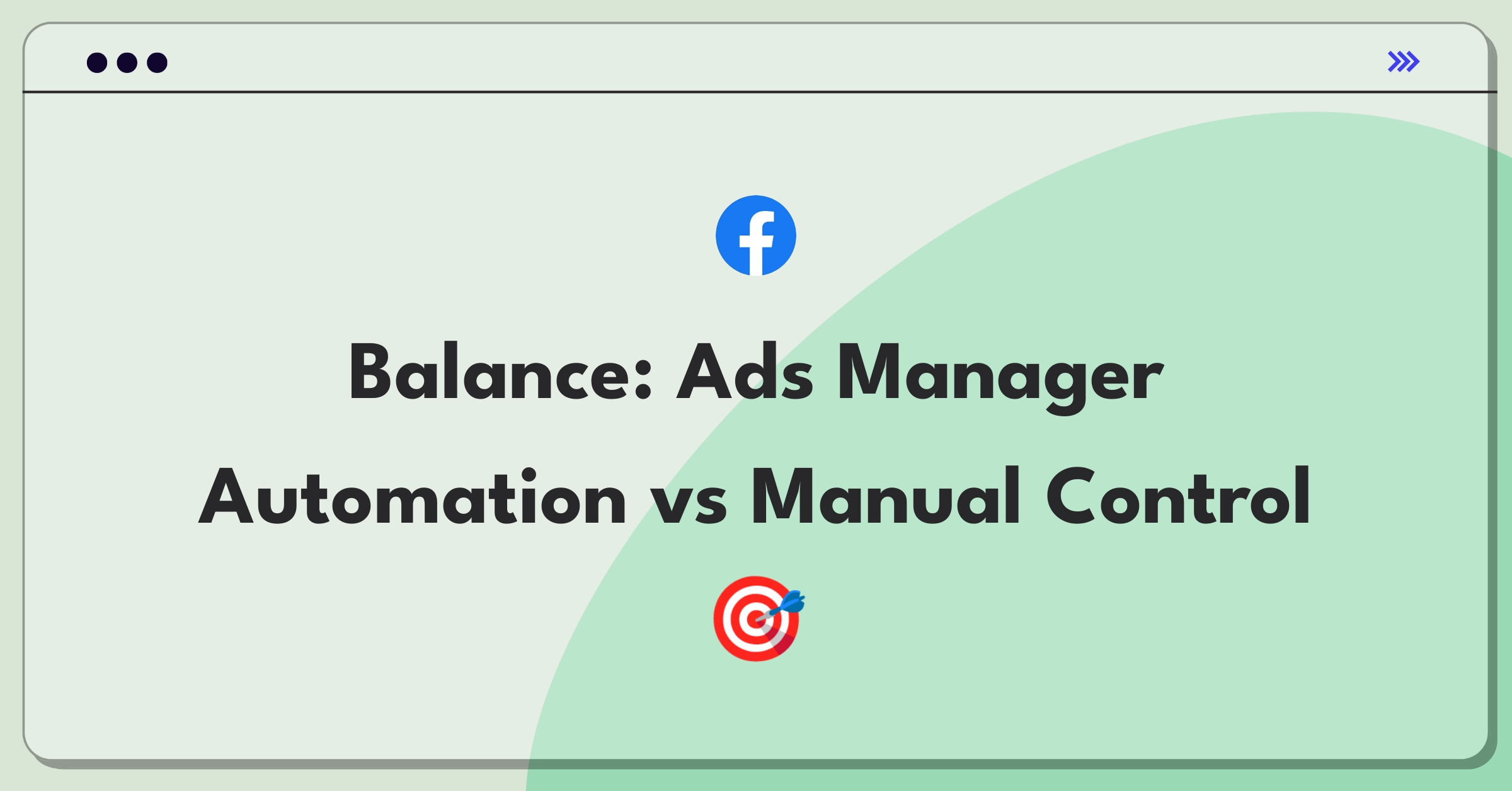Introduction
The Facebook Ads Manager team is facing a critical decision: should we implement automated campaign optimization or provide advertisers with more manual controls? This trade-off involves balancing efficiency and ease of use with granular control and customization for advertisers. I'll analyze this scenario by examining the product context, potential impacts, and key metrics, then design an experiment to inform our decision.
Analysis Approach
I'd like to start by asking a few clarifying questions to ensure we're aligned on the context and objectives of this decision. Then, I'll walk you through my analysis framework, covering product understanding, trade-off evaluation, metrics, experimentation, and decision-making. Does this approach work for you?
Step 1
Clarifying Questions (3 minutes)
Why it matters: Helps contextualize the urgency and strategic importance of this decision. Expected answer: Increased competition from Google Ads and emerging platforms. Impact on approach: Would emphasize differentiation and unique value proposition in our solution.
Why it matters: Aligns the decision with our financial objectives and risk tolerance. Expected answer: Ads Manager contributes significantly (e.g., 70%+) to overall revenue. Impact on approach: Would influence the balance between short-term gains and long-term advertiser satisfaction.
Why it matters: Helps tailor the solution to meet the needs of our most valuable or strategic segments. Expected answer: Mix of enterprise (20%), SMBs (50%), and individuals (30%). Impact on approach: Would inform the level of complexity and customization options in the solution.
Why it matters: Determines the feasibility and potential effectiveness of automated solutions. Expected answer: AI performs well but still lags behind top human experts in some scenarios. Impact on approach: Would influence the balance between automated and manual controls.
Why it matters: Ensures the chosen solution is sustainable and doesn't overburden our teams. Expected answer: Resources are limited, favoring focus on one primary approach. Impact on approach: Would lean towards a more unified strategy rather than trying to fully support both options.
Subscribe to access the full answer
Monthly Plan
The perfect plan for PMs who are in the final leg of their interview preparation
$99 /month
- Access to 8,000+ PM Questions
- 10 AI resume reviews credits
- Access to company guides
- Basic email support
- Access to community Q&A
Yearly Plan
The ultimate plan for aspiring PMs, SPMs and those preparing for big-tech
$99 $33 /month
- Everything in monthly plan
- Priority queue for AI resume review
- Monthly/Weekly newsletters
- Access to premium features
- Priority response to requested question


.png)